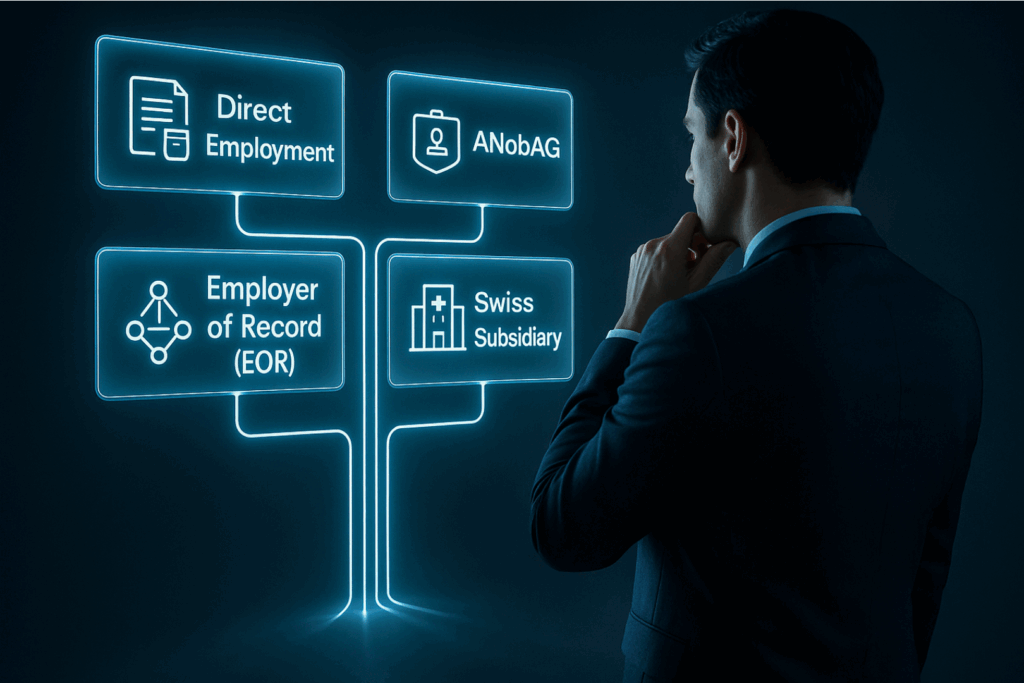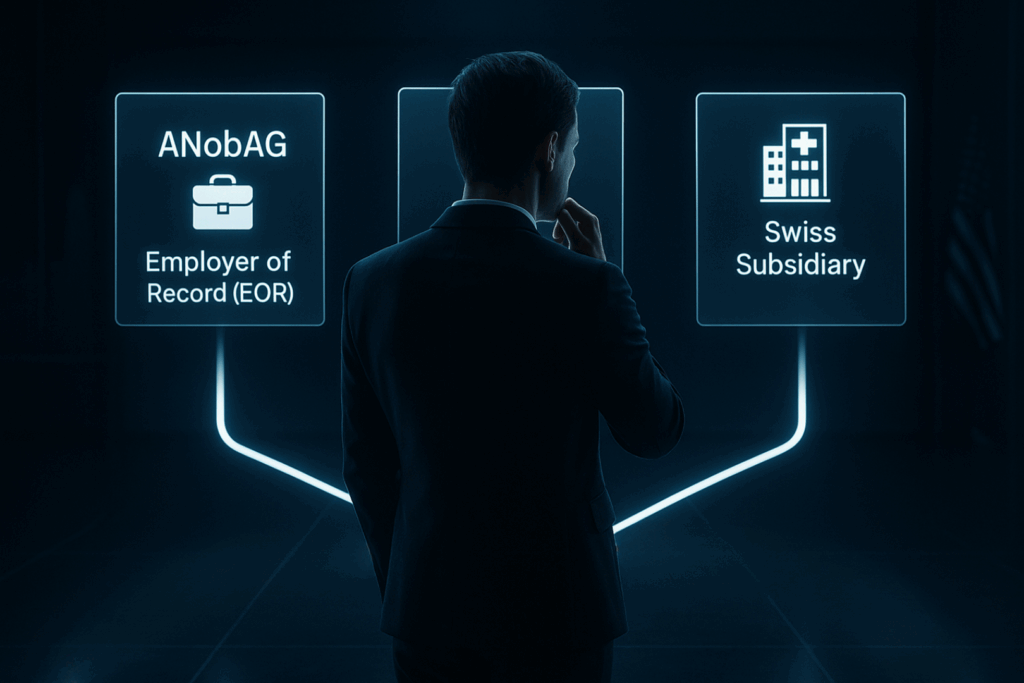ANobAG: Difference of employers from EU/EFTA and third countries

An ANobAG (employee without an employer liable to pay contributions) is someone who lives in Switzerland and works there for an employer abroad who does not have a place of business in Switzerland and is therefore not liable to pay social contributions. For the employee (ANobAG), this results in some special features, which we will discuss in more detail in this article.
What is the difference between ANobAG from EU/EFTA and third countries?
The purpose of the ANobAG regulation is basically that the Swiss social security has a contribution debtor in Switzerland. Thus, if the employer does not have its place of business in Switzerland, the only remaining debtor is the employee.
First of all, a distinction is made between ANobAG who have their employer in a foreign EU/EFTA country and those whose employer has its place of business in a third country.
Employer in EU/EFTA country
If the employer has its place of business in an EU or EFTA country, the bilateral agreement that Switzerland has concluded with the EU regarding the social security obligation applies. This agreement regulates how social security contributions are to be paid.
The employee must expressly agree to pay the social security contributions – both his own share and that of his employer. This means that the employee must agree with his employer that the latter will transfer the employer’s share of the insurance contributions to him. The employee then transfers his own share plus that of his employer to the Swiss social security fund.
Employers in third countries
If the employer is based in a third country, either a social security agreement concluded between Switzerland and the third country applies, or if no agreement exists, the employee must also pay the employer’s contribution out of his own pocket.
In such a case, it should be negotiated with the employer to compensate for this via a higher salary payment so that the employee does not suffer any financial disadvantages.
Swiss social insurance for ANobAG
General principles
In principle, every employee in Switzerland is subject to social security contributions. This means that an ANobAG must register with the AHV compensation fund in his canton of residence.
The employee must complete a form indicating the status as an ANobAG. In addition, a copy of the employment contract must be enclosed, which also states that the employer has its place of business abroad and is not liable to pay contribution tax in Switzerland.
The contributions for AHV, IV, EO, unemployment insurance and family allowances must be paid by the employee. Depending on whether the employer is located in an EU/EFTA country or a third country, there are different regulations regarding accident insurance (UVG) and occupational benefits (BVG):
Employers in EU/EFTA foreign countries
Accident insurance and occupational benefits mandatory
Employer in third country
Only accident insurance mandatory
Social security agreement with EU
The background to the social security agreement between Switzerland and the EU/EFTA is that the various social security systems of the individual states are coordinated when an ANobAG from the EU works in Switzerland, and vice versa.
The agreement is intended to prevent employees from suffering disadvantages with regard to their right to social security entitlements. On the one hand, it is intended to ensure that the employee is properly insured in his or her country of residence and, on the other hand, to prevent the double payment of social contributions in two countries.
Social security agreements with third countries
In addition to the EU and EFTA countries, Switzerland also has social security agreements with other countries. These are:
- Australia
- Brazil
- Canada
- Chile
- China
- India
- Israel
- Japan
- Former Yugoslavia (Bosnia and Herzegovina)
- Kosovo
- Montenegro
- North Macedonia
- Philippines
- San Marino
- Serbia
- South Korea
- Turkey
- Uruguay
- USA
- United Kingdom
Depending on the structure of the agreement, different rules apply and must be considered separately in individual cases.
More questions about your personal work situation? Fill out this form and send it to us as a non-binding request. We will contact you promptly to discuss your individual situation with you.


